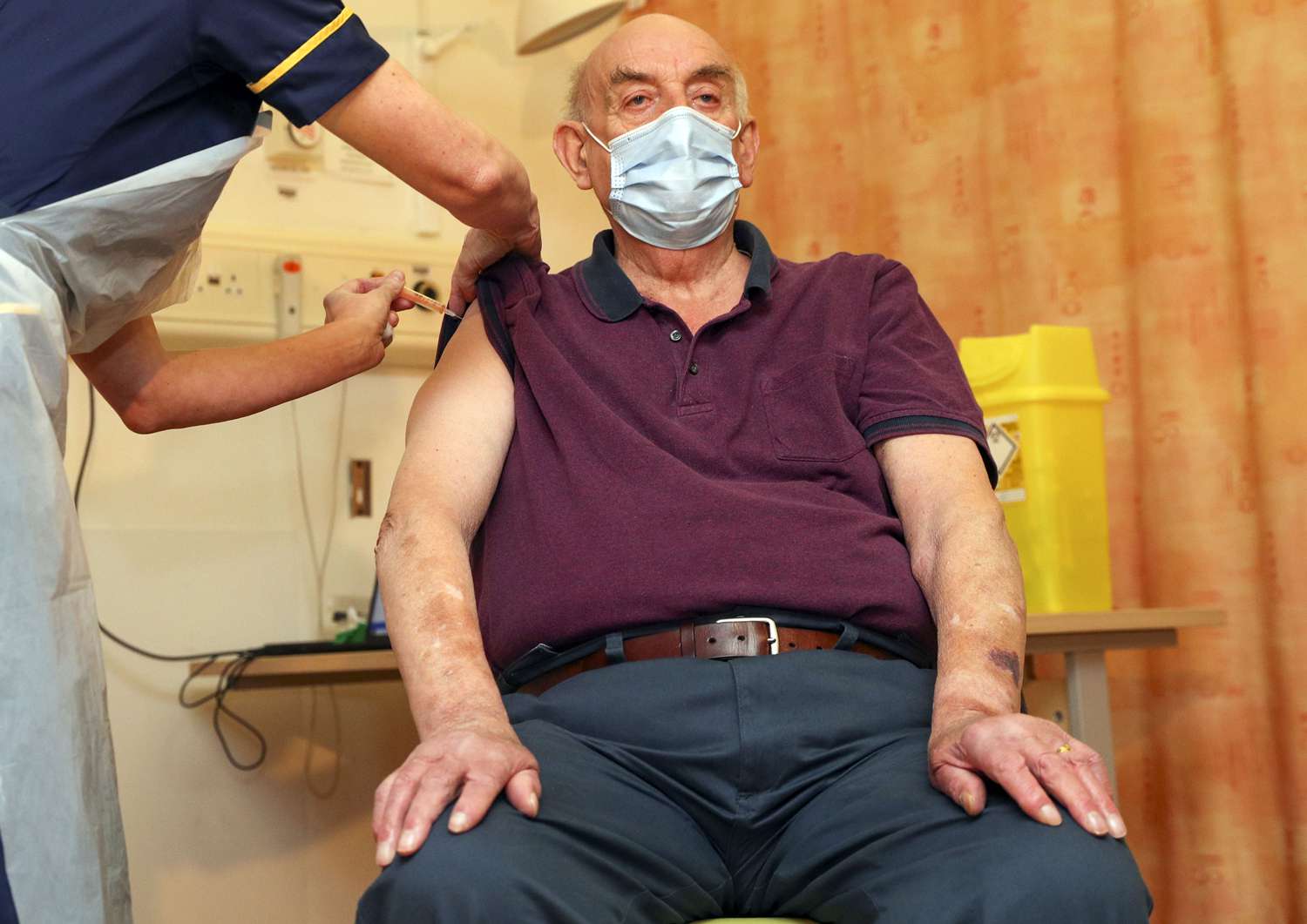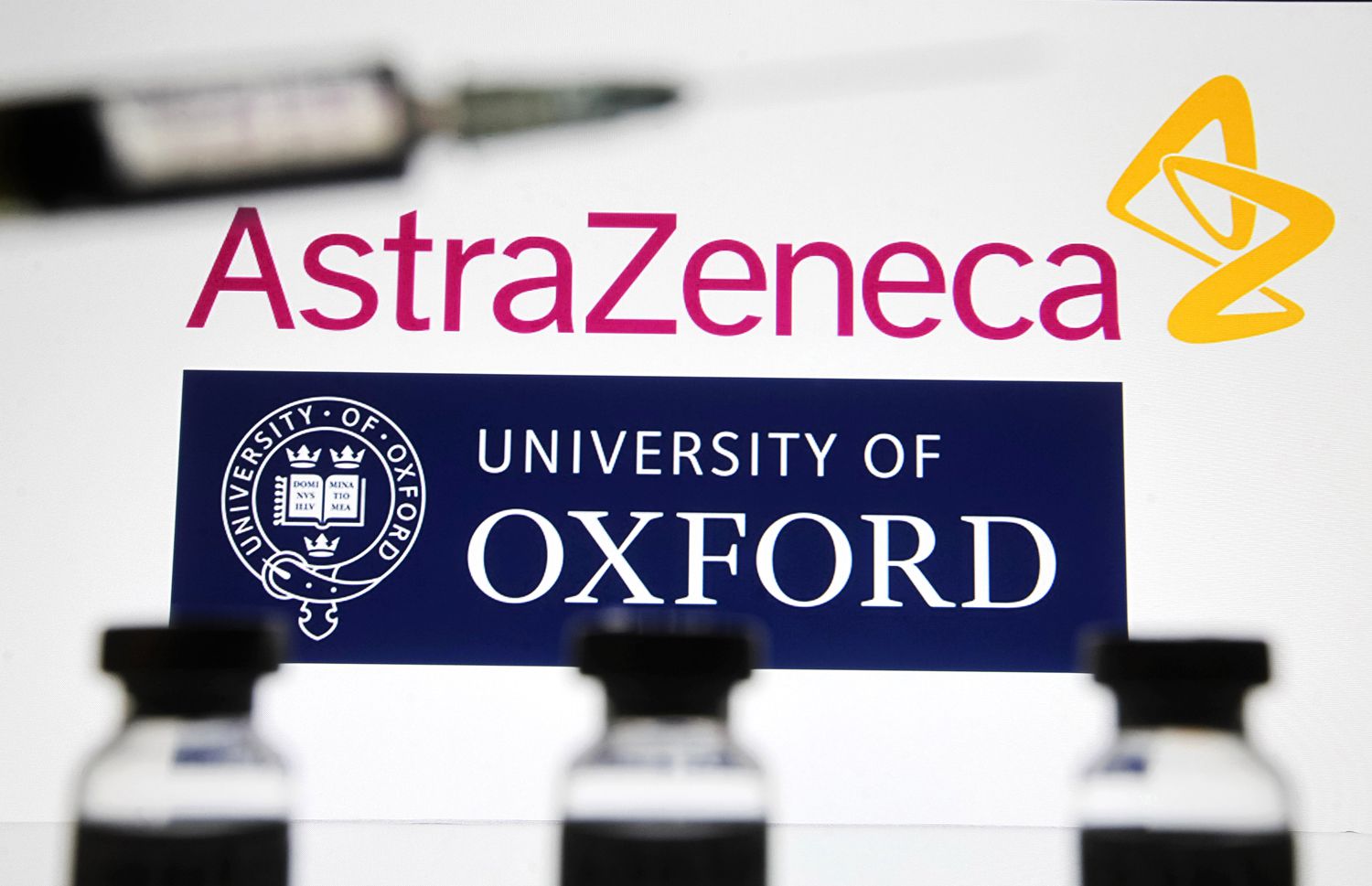
The United Kingdom has become the first nation in the world to vaccinate individuals with the Oxford-AstraZeneca coronavirus vaccine.
On Monday, Brian Pinker, 82, became the first person to receive the COVID-19 vaccine crafted by AstraZeneca and Oxford University since the nation began its initial rollout, according to a statement from the country's National Health Service.
"I'm so pleased to be getting the COVID vaccine today and really proud it is one that was invented in Oxford," said Pinker, who has kidney disease and is a dialysis patient at Oxford University Hospital. "The nurses, doctors, and staff today have all been brilliant, and I can now really look forward to celebrating my 48th wedding anniversary with my wife, Shirley, later this year."
Alongside Pinker, an 88-year-old father of three and music teacher named Trevor Cowlett became the second person to receive the Oxford-AstraZeneca vaccine, before Andrew Pollard, an Oxford professor, became the third.
"It was an incredibly proud moment for me to have received the actual vaccine that the University of Oxford and the AstraZeneca teams have worked so hard to make available to the UK and the world," Pollard said. "As a pediatrician specializing in infections, I know how important it is that healthcare workers along with other priority groups are protected as soon as possible – a crucial role in defeating this terrible disease."

Last week, U.K. health officials approved the Oxford-AstraZeneca COVID-19 vaccine, which Prime Minister Boris Johnson called a "triumph for British science."
"It is truly fantastic news — and a triumph for British science — that the @UniofOxford/@AstraZeneca vaccine has been approved for use," Johnson said on Twitter. "We will now move to vaccinate as many people as quickly as possible."
Never miss a story — sign up for PEOPLE's free daily newsletter to stay up-to-date on the best of what PEOPLE has to offer, from juicy celebrity news to compelling human interest stories.
The Oxford-AstraZeneca vaccine is cheaper to make than the existing vaccines from Pfizer-BioNTech and Moderna — just $3 to $4 a dose — and can be stored for long periods of time because it only needs normal refrigeration temperature to maintain its viability, according to NBC. This makes it particularly monumental for vaccination efforts in developing countries.
The new vaccine is being sent to a select number of hospitals in the U.K. "for surveillance purposes," the NHS England said, before hundreds of new vaccination sites will launch later this week.
The Oxford-AstraZeneca vaccine comes weeks after the U.K. became the first nation to approve and administer the Pfizer-BioNTech vaccine in December. Since then, the United States has also approved the Pfizer-BioNTech vaccine, as well as Moderna's vaccine.
U.S. health officials said that if the Oxford-AstraZeneca vaccine is approved for use in America, it would be in February at the earliest, according to The New York Times.
All three vaccines require two doses, the second administered three to four weeks after the first.
The U.K.'s Department of Health said in a statement that those who receive the Oxford-AstraZeneca vaccine will need to wait 12 weeks — which is a longer time frame than the other vaccines — to get their second dose.
News of the new vaccine comes as the U.K. is in the midst of another spike in cases. As of Monday morning, there have been at least 2,654,779 confirmed cases of coronavirus in the U.K. since the start of the pandemic and 75,024 deaths, according to Public Health England.
As information about the coronavirus pandemic rapidly changes, PEOPLE is committed to providing the most recent data in our coverage. Some of the information in this story may have changed after publication. For the latest on COVID-19, readers are encouraged to use online resources from the CDC, WHO and local public health departments. PEOPLE has partnered with GoFundMe to raise money for the COVID-19 Relief Fund, a GoFundMe.org fundraiser to support everything from frontline responders to families in need, as well as organizations helping communities. For more information or to donate, click here.
Source: Read Full Article
